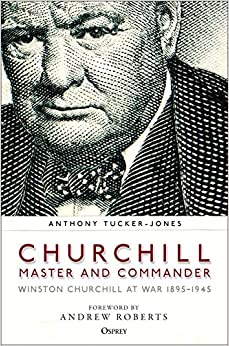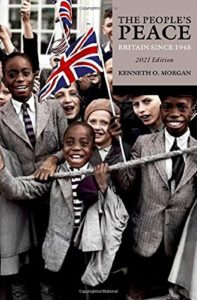Finest Hour 195
Books, Arts, & Curiosities – Churchill in Command

November 14, 2022
Finest Hour 195, First Quarter 2022
Page 46
Review by David Wynne, Jr.
David Wynne, Jr. is president of the North Florida chapter of the International Churchill Society and a moderator of the ICS Facebook page.
Anthony Tucker-Jones, Churchill: Master and Commander, Osprey, 2021, 384 pages, $30.
ISBN 978–1472847331
When Churchill was a boy, he often received miniature toy soldiers as a gift on special occasions. To fill the hours, he learned to array them for battle with great precision and imagination. One day, his father entered his room to find a sprawling battle scene arranged across the floor. Keenly eyeing the impressive troop formations, Lord Randolph asked Winston if he would like to go into the military. Winston quickly replied that he would.
Churchill never forgot this moment, preserving it for posterity in his memoirs. As it turned out, the encounter foreshadowed a remarkable set of military experiences to come. Before his twenty-fifth birthday, his desire for martial glory landed him in theaters of war in Cuba, India, and Africa. He would even spend time in the trenches during the First World War. Such was the military background of the man so many came to know as the celebrated Allied leader in the Second World War.
Previous books have examined Churchill’s experiences in combat, notably Douglas S. Russell’s 2005 study Winston Churchill: Soldier, but we are due for a book that specifically examines how Churchill’s formative military experiences influenced his leadership during the Second World War. Indeed, there has long been a need for an account that allows us to see Churchill, fundamentally, as a “military man.” Without such a lens, we risk missing a perspective that is deeply revealing. With Churchill: Master and Commander, former British intelligence officer Anthony Tucker-Jones has met this need.
For example, Tucker-Jones makes the important observation that Churchill appointed himself the country’s first Minister of Defence. He thus became both Britain’s political leader and its military commander. After the failures of appeasement, Churchill was truly ready to be the ultimate wartime Prime Minister. Through this book, we see how he embraced that role, and how his background uniquely equipped him for it.
Refreshingly, Tucker-Jones does not create the false impression that Churchill was some triggerhappy character, giddy about battle maps and war rooms, as some have portrayed him. Rather, as the easily readable chapters in this book roll by, one is drawn to the notion that Churchill’s passion was for protecting the lives of his countrymen and taking bold steps to hasten the end of wars.
When we study the ways in which Churchill lived out what he saw as his destiny, there is an unmistakable impression that the soldier in him never died. Indeed, one comes away feeling that the imaginative little boy arranging battles scenes on the floor never truly left him. After reading Churchill: Master and Commander, you may well be convinced that there was a warrior’s spirit within Churchill that drove him. Thanks to Tucker-Jones, we can see much more clearly into how this spirit gave us one of the great leaders of the modern age.
Subscribe
WANT MORE?
Get the Churchill Bulletin delivered to your inbox once a month.






